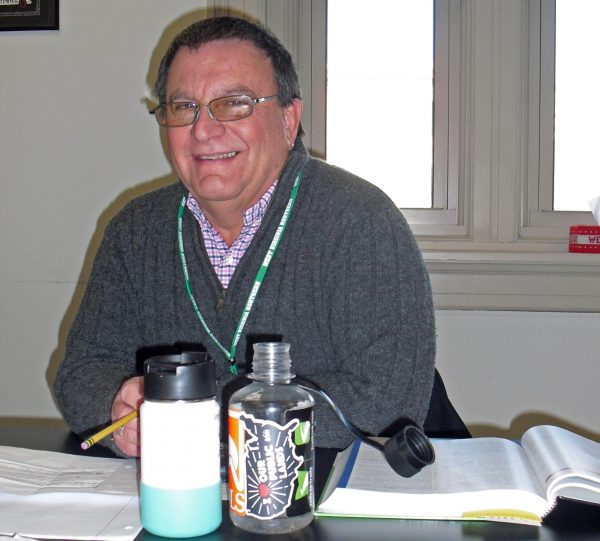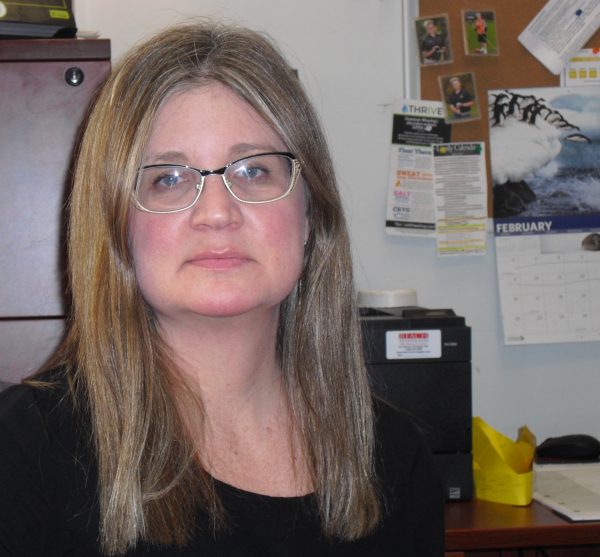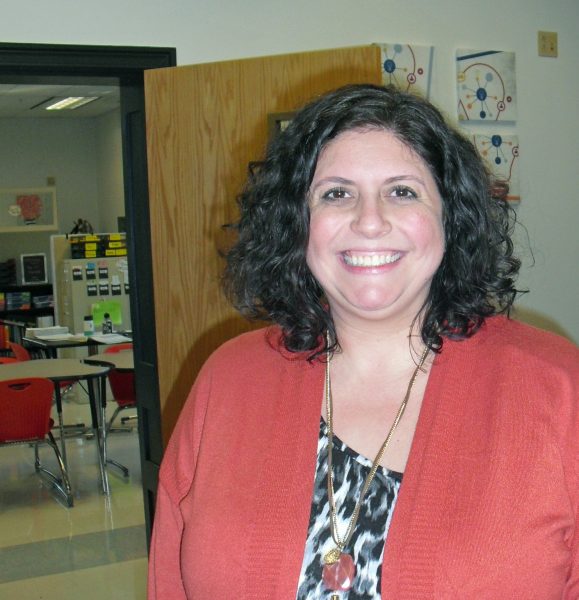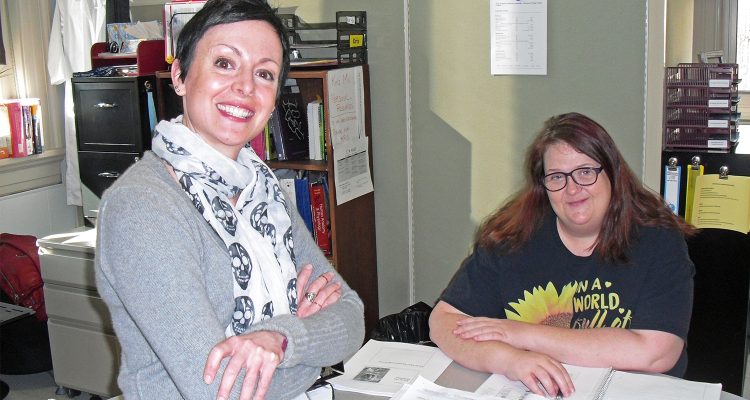“I love math. It’s just a passion,” said John Harris, who specializes in that field in his part-time work as a tutor with West Virginia Northern Community College in Wheeling.
Harris said helping others master such subjects as algebra or calculus is a way to keep his mind nimble, as well. He keys in on helping students develop strategies to not only do the math, but to wrangle their answers into the computer-recognizable forms required in modern classrooms.
“How do you break things down into steps — one thing at a time — and get closer to an answer?” he said of guiding the thinking of students who may be of traditional college-age or may be re-training after a mid-life career disruption.

LINKING ARMS
That kind of strategy is what it’s all about, according to C.J. Farnsworth, director of Northern’s Academic Support Centers, which operate tutoring and other services at the main Wheeling campus and branch campuses in New Martinsville and Weirton.
“It’s not McDonald’s,” Farnsworth said of how the program works. “You can’t come in and expect someone else to do your homework for you … Learning how to study takes time.”
Time is an especially critical issue for both students and tutors — all of whom are locking arms for academic and employment success on a largely part-time basis.
“Learning how to study takes time.” — C.J. Farnsworth
“Our students are very scheduled. Many of them work and many of them also have family responsibilities,” Farnsworth said of that side of the tutoring equation, which involves about 250 of Northern’s 1,700 some students each year.
And, on the other side, she said tutors are often seasoned professionals drawn to the job in part because of its flexible hours.
“Most of our tutors are not students,” she explained of the team of seven to 10 pros. “They are retirees who are still active and vibrant and want to stay engaged with content that they love.” Or, they are graduate students in need of some part-time income, or professionals who are available to work without a full salary and benefits for whatever reason.
That part-time element was part of the draw for math tutor Harris, who also pastors half time for a Presbyterian congregation in Ohio. Both sides of his career matter to him, and both provide income.
“Not a lot of math finds its way into sermons,” he said of a notable lack of overlap. That works the same way on the flipside. “I imagine 90 percent of my students aren’t even aware that I’m a pastor.”

ACADEMIC STRUGGLES
While some of Northern’s students are traditional college-age or even younger — some high school students get early college credit through the campuses — Farnsworth said those coming back to the classroom after 20 or 30 years away have special challenges.
Northern tries to stay ahead of problems traditional and non-traditional students may have by having faculty recommend individuals for tutoring if a bad test score comes in or other signs of academic struggles appear, she said.
And, through an innovative side to the tutoring program, it may be the tutors themselves who identify which students need help in order to succeed.
Farnsworth explained that the tutors — even those with graduate degrees — take the time to embed in classes that are frequent trouble spots for high numbers of students. These often include math classes or anatomy and physiology, a science class that must be passed by students in several programs of study.
“They’re sitting in the class and, when they’re in the classroom, they’re sort of modeling student behavior,” Farnsworth said of the tutors. “They’re taking notes.”
They’re also keenly aware, by this in-class exposure, of various faculty teaching styles, homework assignments and other highly specialized elements of instruction.
If that safety net somehow misses someone, Farnsworth said, “other times, students will just walk in and say, ‘I am just lost.’”
In this latter case, she noted it’s sometimes a tech-learning curve, often more of a problem for non-traditional students. Northern students manage courses through an online system called Blackboard. For someone who’s been working, possibly away from computers, for a decade or more, extra help learning the system may be required.
Harris said he has seen similar struggles among non-traditional students being asked to do math they haven’t seen since high school. But, they often fare better overall than younger students who didn’t take higher-level math the first time around, he noted.
“I don’t have to explain it as much as help them remember,” he said of students who haven’t seen a quadratic equation in 20 or more years. Overall, the non-traditionals often have more effective study habits, he added. “That level of maturity translates into the classroom.”
That is what is driving Amanda Harbaugh, a social work student who returned to school in mid-life after raising a family. Harbaugh was working through biology terms and concepts on a recent day with tutor Kris Matyskiela.
Harbaugh, in her third semester at Northern, said it hasn’t been easy. “They’ve (tutors) seen me cry,” she said of gearing back up for a new career track. “But, I’ll get this. I’ve got a really good tutor.”
PAYING IT FORWARD
Seeing a student like Harbaugh on the Dean’s List or even just passing a class that has been a particular struggle makes Harris happy. And, by graduation day, the feeling can turn into something more, according to Stephanie Smith, tutoring coordinator at the Wheeling campus.

“The student’s proud,” Smith said of those finishing a two-year program, either to begin immediate work or to pursue more education elsewhere. “You feel really proud for them, especially for the opportunities that may be coming down the line. They get to go out and do what they want to do.”
Harris smiled at that comment and pointed out that, as Wheeling-area residents, there is a bit of a self-serving component to linking arms with younger residents to help them have successful employment.
“I may be in the hospital bed that they’re staffing. I may be living in the house that the electrician is rewiring,” Harris noted, smiling again. “Plus, they’ll all be paying into the Social Security that will help support me.”
• A long-time journalist, Nora Edinger also blogs at noraedinger.com and Facebook and writes books. Her Christian chick lit and faith-related non-fiction are available on Amazon. She lives in Wheeling, where she is part of a three-generation, two-species household.


